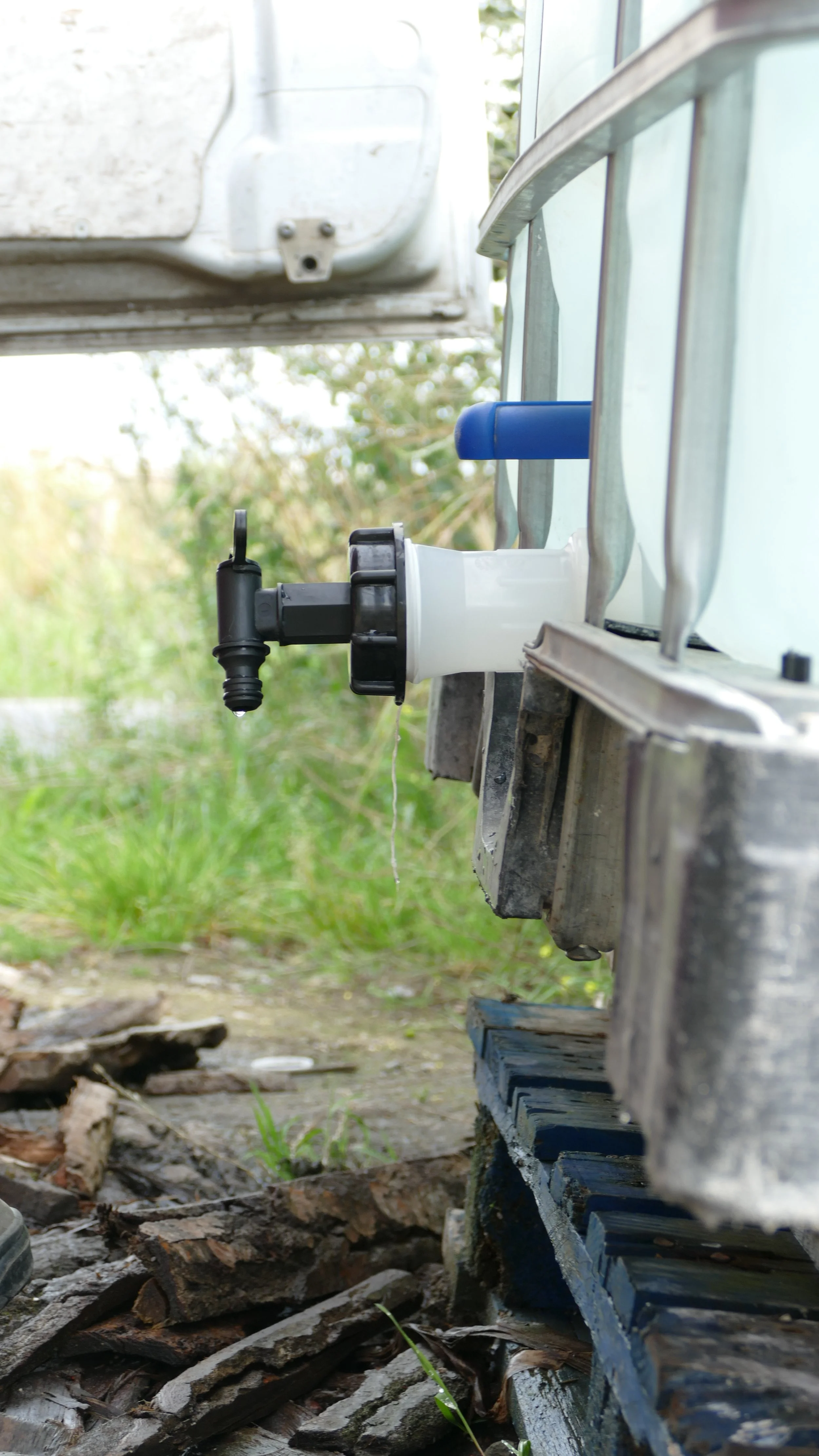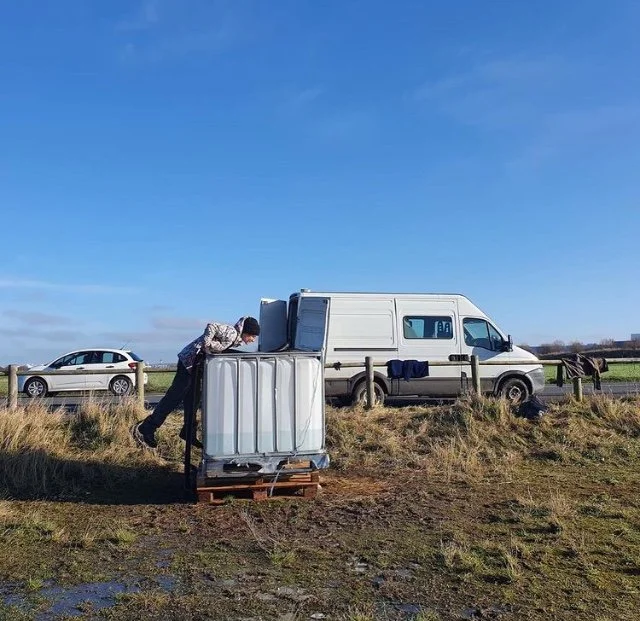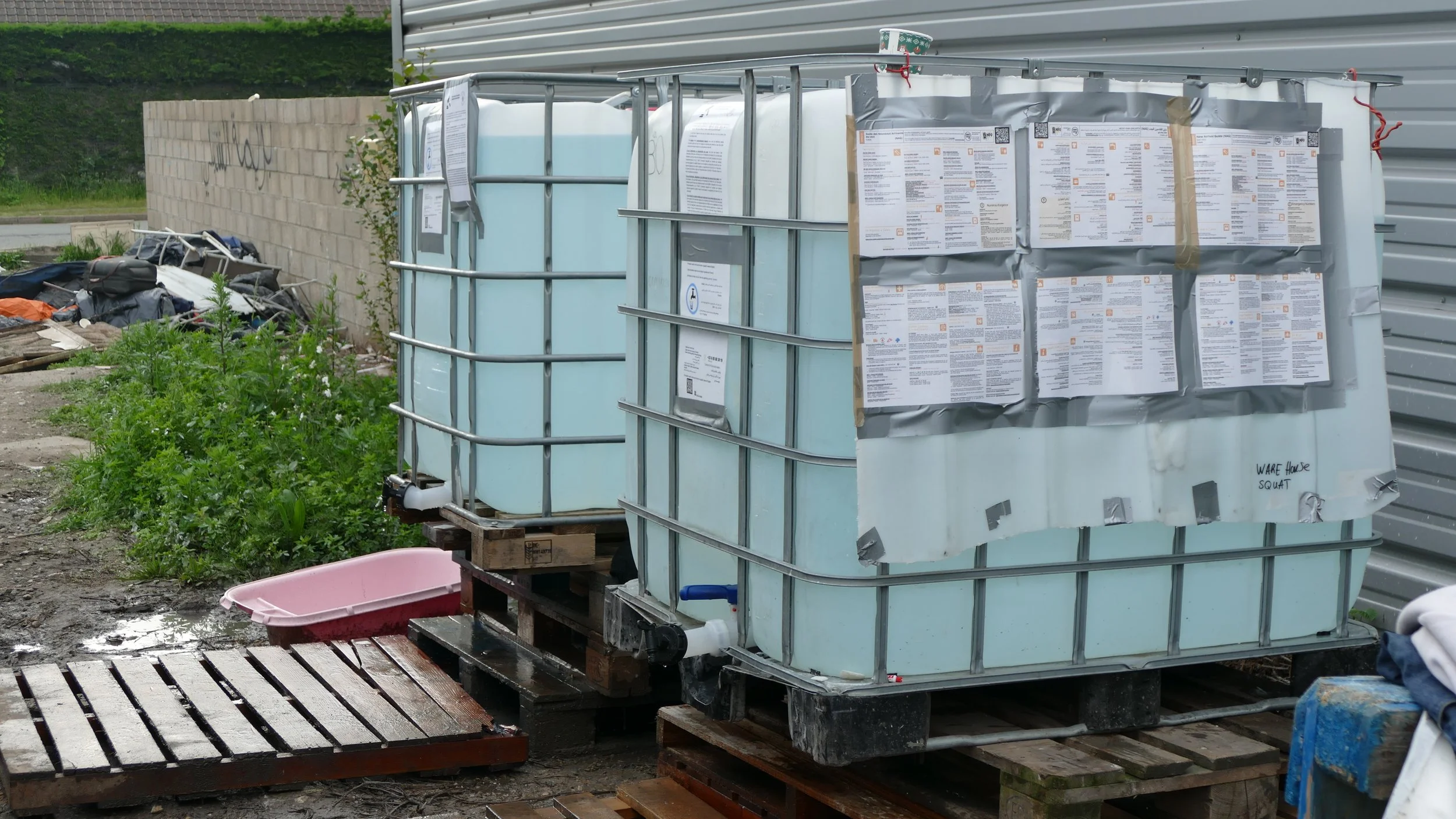
WATER PROJECT
In 2024, we supplied more than 2.8 million litres of clean water - used by displaced communities for drinking, cooking, and washing.
Clean and safe
drinking water for all
We support people on the move in Calais by facilitating continuous, reliable access to clean water at the living sites (patches of land where displaced people live in tents and makeshift shacks). We reach up to 2,000 people every month through our water project, providing immediate support while simultaneously pressuring the state and local authorities to comply with their human rights obligations.
We install semi-permanent 1,000 litre water tanks in close proximity to the living sites, minimising the distance that people on the move must walk or travel to access clean water. We are currently maintaining water points at 14 living sites in and around Calais. Our water points are filled and sanitised daily, with our water project running 365 days a year. We have also installed makeshift sinks at a number of the living sites, and our water drop regularly includes distributions of sanitation items such as soap, washing up liquid, and bin bags.
The water we provide is used by people on the move for drinking, personal hygiene, washing clothing, cooking, and more. We recognise that the right to water means accessing an adequate amount of water to cover a wide range of needs for the maintenance of health and dignity. The World Health Organisation recommends people need an absolute minimum of 7.5L treated water per person per day (in the acute stage of a humanitarian emergency). In Calais, people would have access to less than this without our support.
We collect quantitative data on the amount of litres of water distributed at the living sites every day. This data is utilised for collaborative reports and advocacy work on water access, such as Solidarités Internationale’s ‘Observatory on Water and Hygiene Access in Northern France’. We also work closely with Solidarités International on the day-to-day efficiency and sanitation of our water provision, with their professional guidance invaluable for making improvements over the years. These include the installation of a water pump, the implementation of precise testing of water quality and a strict procedure for the cleaning of all water containers.
In 2023, France accepted recommendations from UN members on improving water access for people on the move in northern France. Despite this commitment to act, we have not witnessed any improvement to water access for displaced communities at the border. The state-mandated approach to water provision remains significantly inadequate, and inaccessible for many. Until the French state and the local authorities in Calais take responsibility for ensuring water for all, we will continue to facilitate water access, raise public awareness, and campaign for long-term solutions.
Our main objectives
Ensure that people on the move in Calais have reliable, 24/7 access to clean water, in close proximity to their living spaces.
Collect robust data on water provision and record obstructions to water access for people on the move in Calais.
Campaign locally and internationally for state-implemented, long-term solutions for water access.
See more about how the second and third objectives link to our advocacy here.



